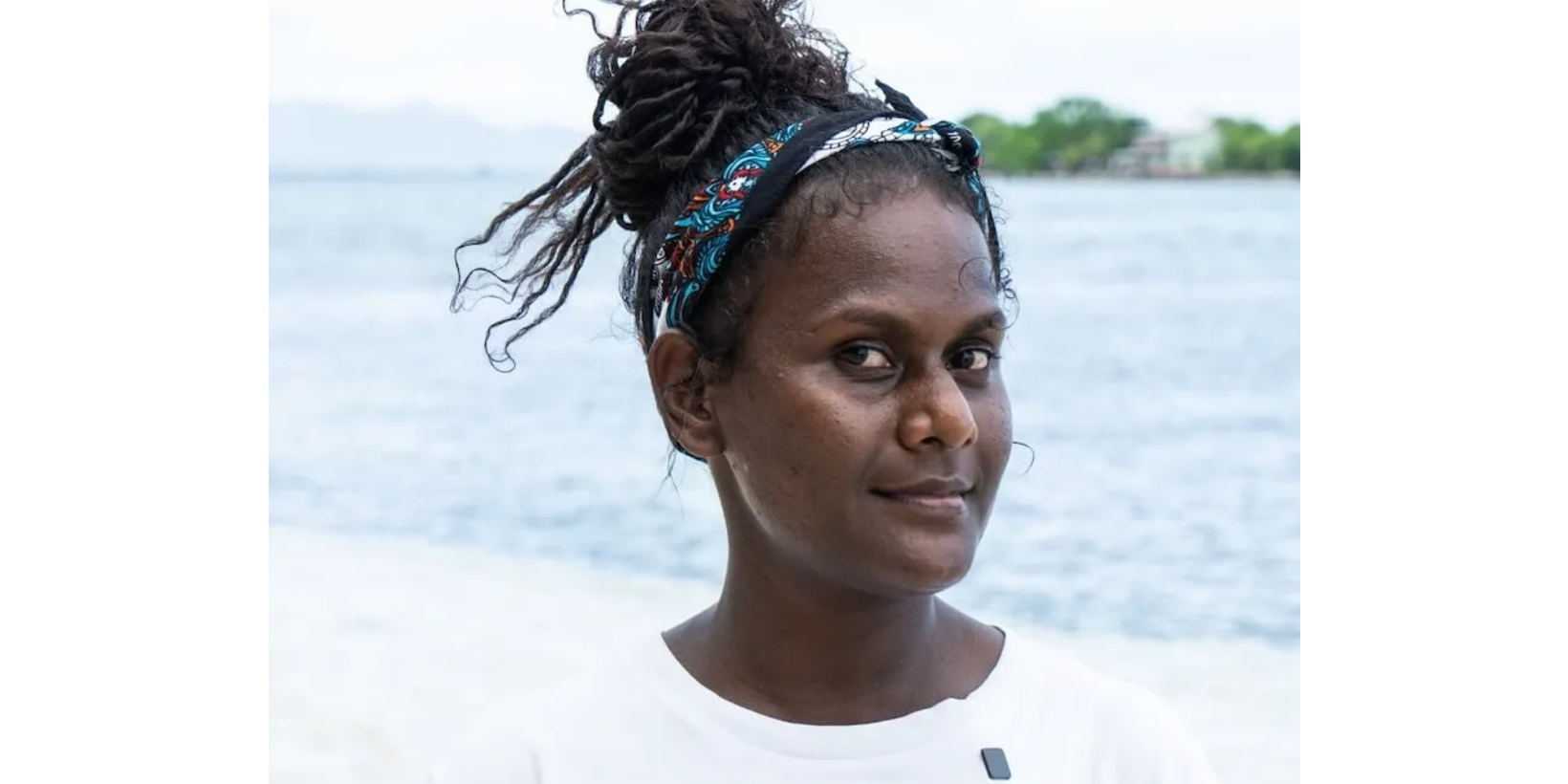MAINTAINING a clean and healthy marine eco-system is vital for human survival.
That is exactly what drove 28-year-old Sumana Deni to join an initiative to transform Gizo into a township with a clean and healthy ecosystem.
Ms Deni is a member of the Positive Change for Marine Life (PCFML), an organisation she joined on 2 August 2022.
PCFML is a non-profit organisation which implements projects in Solomon Islands, Australia and India.
In Solomon Islands, the organisation is based in Gizo.
Its focus is basically on promoting a clean environment through the recycling of domestic wastes such as plastics and cans.
Ms Deni dedicates her time to ensure the residents and communities of Gizo enjoy a clean community.
She leads a dedicated team that comprises mostly ladies who are determined to transform Gizo’s waste management and conservation efforts into something positive and beneficial.
The team is working tirelessly to reduce the negative impacts of wastes on marine and coastal ecosystems.
When asked what motivated her to join the PCFML’s Waste Management Team, Ms Deni gave two reasons.
The first is to keep the land and sea ecosystems clean because of their essentiality for human survival.
“They give us food, clean water and air. They also support biodiversity and help keep our planet’s ecosystems balanced.
“Protecting our land and seas is essential for our survival and the well-being of future generations. By taking care of these valuable resources, we can create a healthier planet and a sustainable future for all living things,” she said.
The second reason is to instil in the minds of Gizo residents the need to change from their bad old habit of dumping wastes at dumpsites to segregating and recycling them as reusable items.
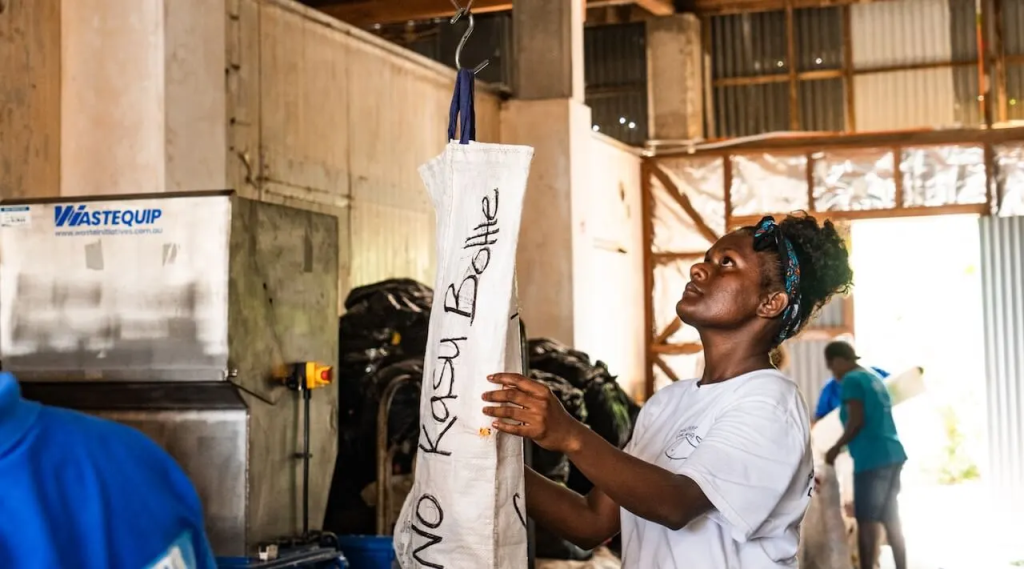
“These alternative practices will help people manage waste properly and reduce the amount that ends up in the ocean,” Ms Deni said.
Ms Deni highlighted that one of PCFML’s achievements is advocating against single-use plastics at the Gizo Market.
“Additionally, we encourage people to recycle waste, as this can also provide a source of income through the recycling of both organic and inorganic materials,” she said.
Gizo is the provincial capital of Western Province located on an island called Gizo.
It is one of the top tourist destinations in Solomon Islands, apart from Guadalcanal Province and Honiara.
It is also known for its stunning scenic beauty, exceptional reefs and rich cultural heritage.
Gizo is surrounded by blue ocean and islands with white sandy beaches.
Like any other urban centres in Solomon Islands, Gizo’s surrounding, coastlines and its pristine waters remain fragile.
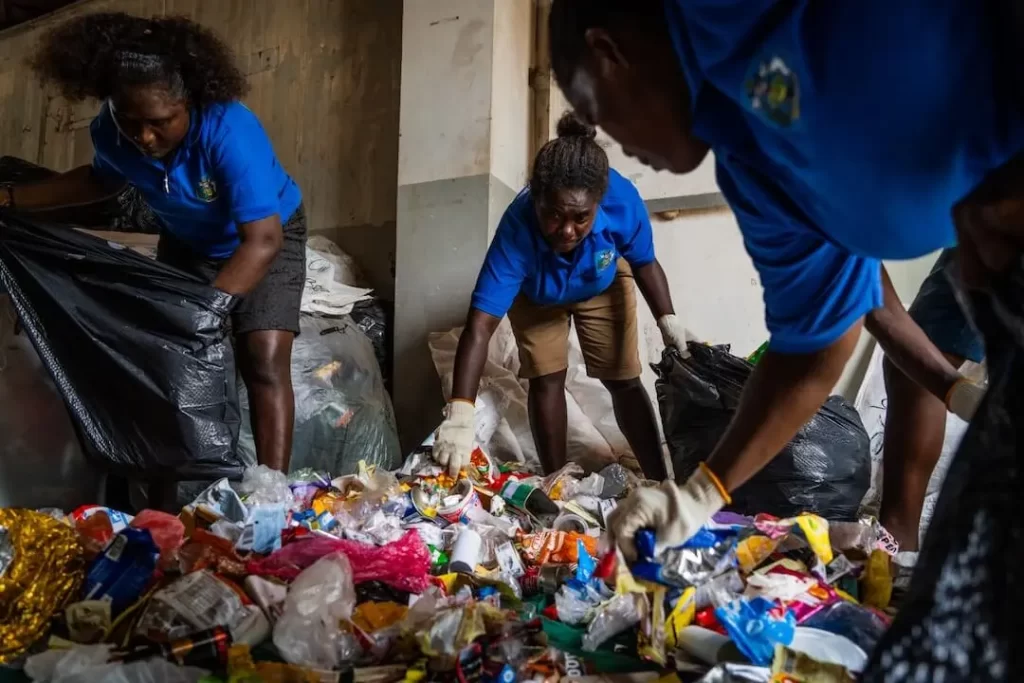
This is due to increased urban drift, rising population and various economic activities.
Over time, the eco-system both on land and under the sea have been threatened by the increasing uncontrolled disposal of solid waste and rubbish into the environment.
It is a sad case.
Like a mother who cares for her children’s future, Ms Deni wants to see the future generation enjoy the beautiful oceans and environment.
She hails from the beautiful Marovo Lagoon, which is regarded as one of the world heritage sites.
Ms Deni knows how important the connection between human survival and a clean environment is.
She attended Ulona primary school on Vangunu and then went on to do her secondary education at Bekabeka Community High School on Gatokae, Gerasi High School in North New Georgia and Jones Adventist College (JAC) on Vella.
She graduated with a Diploma in Public Health after completing her studies at the Solomon Islands National University (SINU) from 2017 to 2018.
After leaving SINU, she was determined to bring changes to her community and she never regretted joining PCFML.
Her key responsibilities are to assist the Program Manager with the conducting of research, organising of meetings and collaborating with partner organisations.
At times, she also assists with finances and budgets, coordinating events and providing weekly updates directly to the Project Manager.
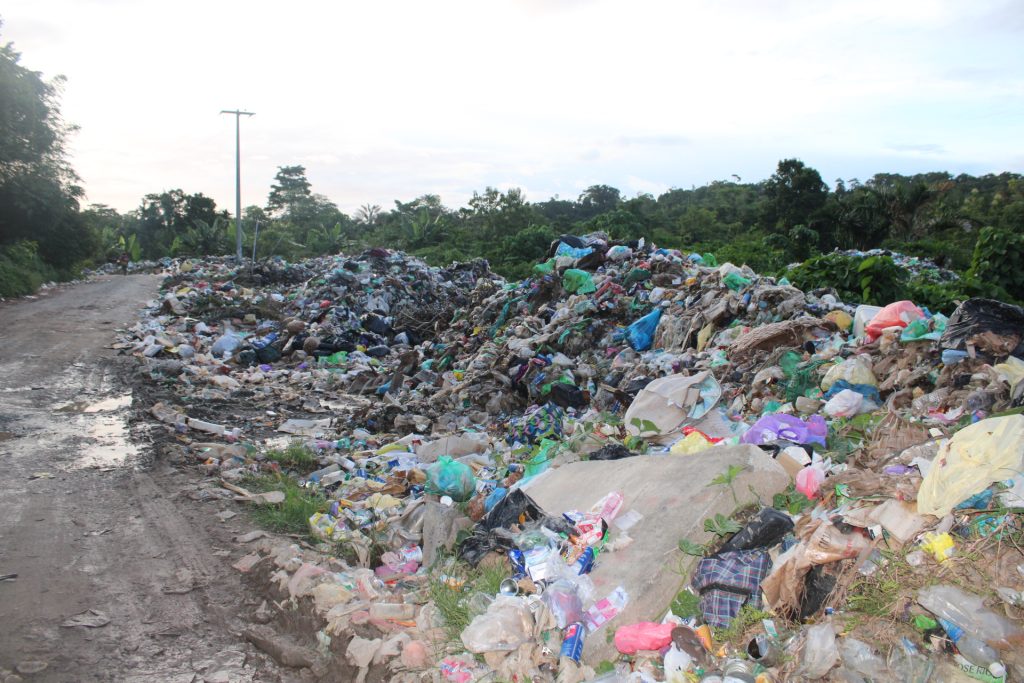
Her main roles are:
• Coordinating PCFML’s weekly household and business Waste Collection Service (WCS).
• Organising and facilitating PCFML’s community education programs and workshops.
• Operating waste management machinery and safely training others to do so. This includes plastic shredding, moulding, granulating, and/or extrusion machines.
• Assisting with the set-up and operation of our organic composting and hydroponics (CaHP) systems in the region.
• Sourcing materials for and facilitating our plastic up-cycling programmes.
Ms Deni’s unwavering dedication to ensuring a clean and healthy marine ecosystem also resulted in her setting up a recycling hub and waste management initiative.
Each week, her team visits communities to collect sorted plastics from homes, transporting them to a small facility at the BP Area where they are weighed, sorted and either stored or repurposed.
Most of the aluminium cans were normally recycled and shipped overseas.
By establishing such practical systems and facility, collaborating with local artisans and championing forward-thinking ideas, Ms Deni is laying the foundation for a sustainable community that protects the eco-system that everyone depends on.
Plastics that were collected have been turned into crafts and experimented on as building materials.
Every now and then, her team would collect domestic wastes from homes and transport them to their repurposed waste centre, where it is upcycled into new products such accessories, furniture, coasters and etc.
The target is to empower Gizo’s residents to manage their solid wastes like tins and plastic to avoid dumping them into the oceans, creeks, streams, nearby bushes, Ms Deni said.
She dded, managing solid wastes remains a challenge for the township.
Lack of garbage bins and rubbish collection results trash being left to accumulate at many residences and business houses.
In early January 2024, Ms Deni and her group would spend time at the Gizo main market raising awareness about the importance of using locally-made bags and products.
The significance of the campaign was distributing and promoting free bio-degradable products locally-made from wood, betelnut leaves and paper.
This was to prepare for the plastic ban enforced by the government in March 2024.
Her team encouraged the public to use eco-friendly alternatives, emphasising the importance of transitioning from plastic to sustainable materials.
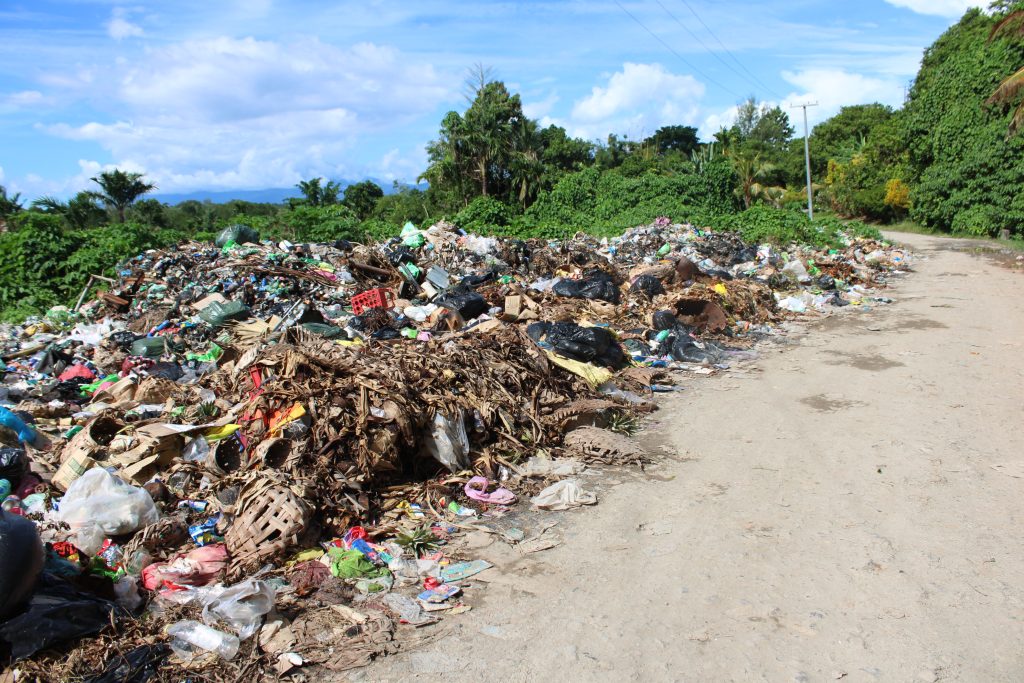
Ms Deni said the campaign was important to create awareness and help people shift from the mindset to depend on plastic and start using locally sourced and eco-friendly products.
For Ms Deni, waste management is far more than just a clean-up. It is a way to educate and empower her community through regular collective action.
Her dream is for the community to be involved in the island’s conservation efforts and realise the crucial connection between a clean environment and the cultural values that define life on Gizo Island.
Ms Deni’s work is testament to the fact that determination and collaboration can propel real change.
Heyerdahl Vavozo, PCFML Country Manager, Solomon Islands said, PCFML is a Community-driven conservation organisation, connecting and empowering diverse stakeholders to take action for the ocean. Focused on Marine Biodiversity Hotspots in Australia, India and the Solomon Islands.
Funded by the United States Agency for International Development (USAID), the program is called Waste to Wealth (W2W)Waste to Wealth.
Key activities under the program:
1. Waste Collection Service (WCS)
a.Our WCS employs marginalized women, youth and people with disabilities in India and the Solomon Islands to collect, segregate, and manage 5 streams of pre-washed household and business waste weekly, diverting it from streets, rivers, and the ocean!
b. Collecting around 100kg of waste each week from 275 households around 1600 community members
c. Turning wastes into new products (recycle)
2. Repurposed Waste Unit
a. We create wealth from waste using shredding, plastic press, extrusion and mould machines to up-cycle household waste into sellable goods, creating income for local communities – a truly closed-loop approach!
b. Products include, bags, jewelries, crafts, pillow, holders, furniture ( table, chairs)
3. Leave No Trace
a. By transitioning supply chains to ‘ocean-friendly’ products, we eliminate harmful plastic waste items at source. working with Gizo market and local vendors to Transitioned vendors to become 100% single-use plastic-free Making Gizo Marketplace 100% plastic free!
4. Black Soldier Fly Larvae Organic Compost
a. Organic waste pollutes waterways, attracts pests, and spreads disease. Our solution is Black soldier fly larvae which convert organic waste into chemical-free fertiliser. Compost supports livelihoods, and we provide trainings for schools and interested community groups.
Mr Vavozo said, recently their program is being impacted by the USAID funding freeze by the Trump Administration as 90% of their program is funded by the USAID.
“Nine (9) months into our program the USAID funding freeze is negatively impacting our program, and we must secure alternative funding to continue supporting our communities.”
They have made significant impacts in the communities we work with,
a. The environment is clean,
b. Waste education/training provided to over 120 community members,
c. 20 new jobs created for the marginalized women and youths,
d. We have removed 3.306 tons of solid waste from which we created new products,
e. Collected 330kg of organic waste which are converted into 193kg of compost as our first trial,
f. Waste collection services reaches 275 households including whole of Nusabaruku community.
Their second program is called Fishing for Change Fishing for Change Solomon Islands.
This Fishing for change program is in the process of establishment focusing or marine conservation and sustainable fisheries and livelihood.
Four key focus area are:
1. Coral Research & Restoration Centre: Training regional communities in coral restoration and protection of climate resilient species.
2. Sustainable Fisheries: Supporting gear transitions, hotspot monitoring, and policy enforcement.
3. Alternative Livelihoods: Expanding seaweed farming and Waste to Wealth program for economic and food security benefits.
3. Marine Protection: Establishing co-managed MPAs and OECMs tailored to community needs.
Mr Vavozo is optimistic USAID will continue to support their programs in Solomon Islands.
By MOFFAT MAMU

